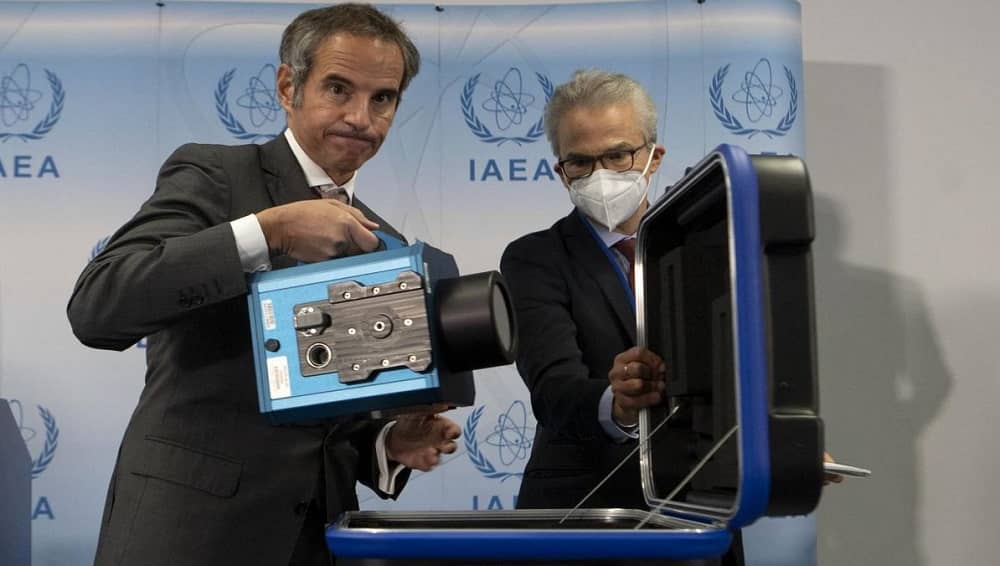Facebook
Twitter
LinkedIn
Pinterest
Reddit
Email
Print
 IAEA Director General Rafael Grossi demonstrates a surveillance camera used to monitor nuclear sites
IAEA Director General Rafael Grossi demonstrates a surveillance camera used to monitor nuclear sites
Two-minute read
The clerical regime in Iran has formally suspended all cooperation with the International Atomic Energy Agency (IAEA), deepening the nuclear standoff with the West and raising new fears over the future of Tehran’s atomic activities. The move comes after Israeli and U.S. airstrikes targeted Iranian nuclear facilities in June, prompting the clerical dictatorship to escalate its strategy of secrecy and defiance.
The law mandating the suspension—approved by the parliament on June 24 and confirmed by the Guardian Council—was officially communicated by the regime’s president Masoud Pezeshkian to the Atomic Energy Organization of Iran (AEOI), the Supreme National Security Council, and the Ministry of Foreign Affairs for immediate enforcement. According to the text of the legislation, all cooperation under the Nuclear Non-Proliferation Treaty (NPT) and its safeguards is to be halted until “the security of nuclear facilities and scientists is guaranteed.”
As a result, the IAEA has lost all access to Iran’s nuclear data, and the location of the regime’s 409 kilograms of near-weapons-grade uranium is now unknown. This uranium, enough for at least one nuclear device, can be stored in a relatively small number of transportable cylinders, fueling concerns it may have been relocated to undeclared sites.
#Iranian Nuclear Chief Admits Regime Exploited #JCPOA to “Close File,” Blames @Mojahedineng for Derailing Secret Strategyhttps://t.co/Jbqr6xPPJo
— NCRI-FAC (@iran_policy) June 3, 2025
The Vienna-based agency, which had been averaging more than one inspection per day prior to the June 13 strikes, has reportedly been unable to reach Iranian nuclear regulators for over a week. “Strategic ambiguity” now appears to be the clerical regime’s principal tactic, echoing Cold War-era nuclear brinkmanship.
IAEA Director General Rafael Grossi recently warned that although the Natanz and Fordow enrichment sites sustained damage, Iran could resume full enrichment “within months.”
IAEA Report and Geo-Economic Data Expose #Iran’s Nuclear Program as Weapons-Drivenhttps://t.co/Z8PTOUIIjx
— NCRI-FAC (@iran_policy) June 3, 2025
Meanwhile, the new law threatens domestic penalties for any Iranian official found to be cooperating with the IAEA, further cementing Tehran’s withdrawal from international monitoring.
With inspections frozen and enrichment capacity uncertain, the situation remains volatile. Analysts warn that while ambiguity may offer Iran short-term leverage, it also undermines its ability to credibly signal peaceful intent on the international stage.